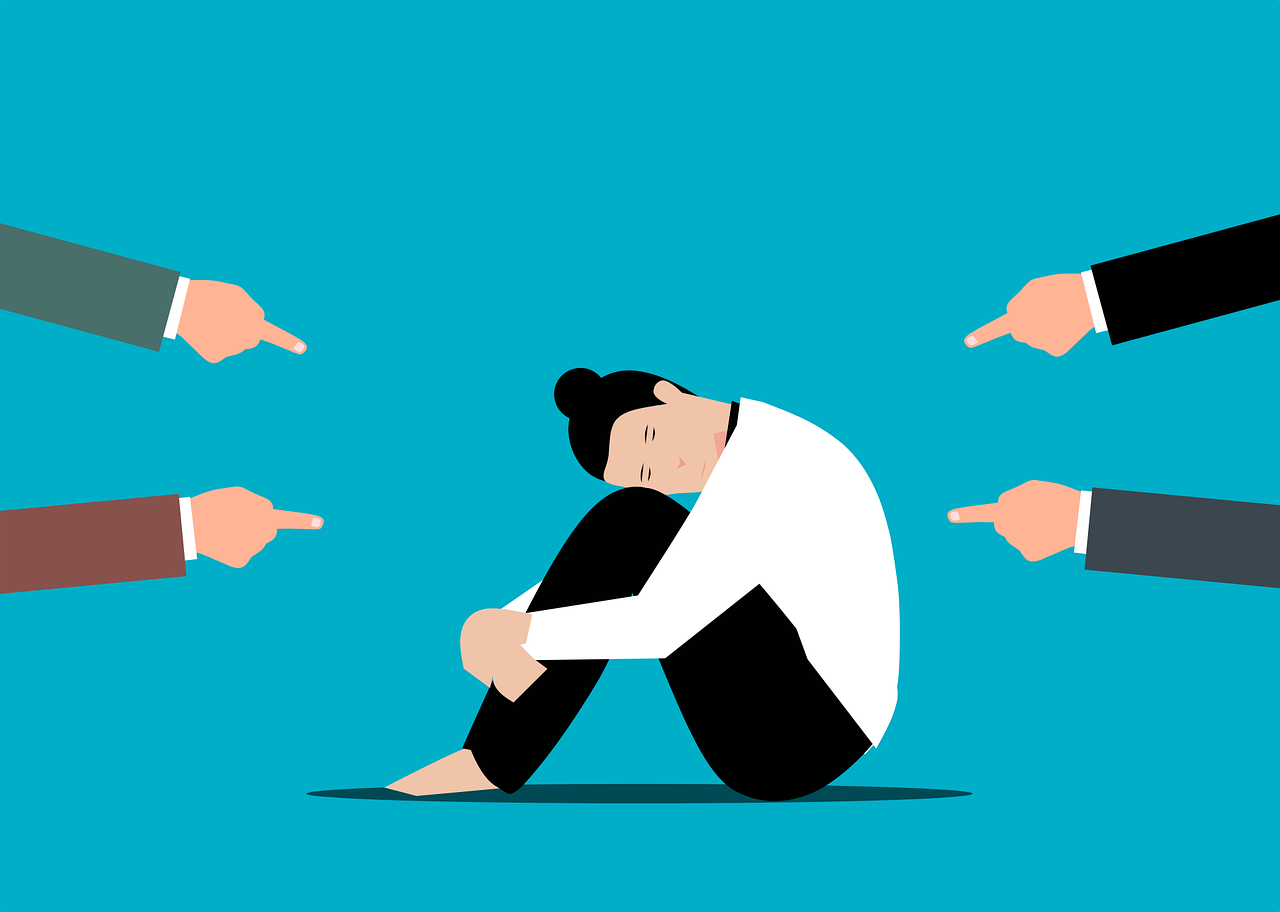Unraveling Overt Discrimination: Causes, Effects, and Solutions
30 May 2023 | 7 mins read
- Employee resources
Discrimination – a word we’ve all heard, and unfortunately, something many of us have experienced.

Especially when it’s blatant and unapologetic, it’s known as “overt discrimination”. This form of bias is an ugly reality in our society, often deeply hurting those on the receiving end.
Let’s dive into a detailed understanding of this toxic behavior, its harmful effects, and how we can combat it. This article is not just a definition but a call to action, aiming to shine a light on this issue and hopefully, contribute to a more understanding and equitable world.
Understanding Discrimination in Society
Have you ever had a serious chat about discrimination? Let’s delve a little deeper into this troubling behavior. Discrimination, in its simplest terms, is the unjust or prejudiced treatment of people just because they’re different in some way.
It’s a habit that some individuals, institutions, or even societies can have, and it’s unfortunately not as rare as you’d like to believe.
Discrimination exists in every corner of the world, from the quietest rural communities to the bustling cities. It’s a global issue that impacts millions of people every day. It comes in many forms – racial, gender, age, disability, and more. Each type of discrimination bears its own set of problems and consequences.
Take the United States, for example. While we’ve made significant strides towards equality in recent years, discrimination is still a reality for many people. Ethnic groups and people of color often experience the brunt of it, from overt racism to more subtle forms of discrimination.
Now let’s bring it home with a relatable example. Picture a friend of yours – let’s call her Jane. Jane’s been at her company for five years, always delivering stellar work. She’s pregnant, and due for a promotion, but it goes to someone else. Her boss told her bluntly that her pregnancy was the reason she didn’t get it.
Can you imagine how that must feel?
Jane might experience a whole range of emotions, from shock to anger, and even depressive symptoms over time. This personal account is, unfortunately, a reality for many people experiencing discrimination.
Overview of Overt Discrimination
Now, let’s explore a specific form of discrimination that’s often the most obvious, yet also the most shocking – overt discrimination. It’s the kind of discrimination that slaps you in the face.
No subtle digs or covert innuendos – just straightforward, unjust treatment based on a prohibited basis like race, gender, marital status, or in Jane’s case, pregnancy.
This type of discrimination is often linked to disparate treatment, where individuals are blatantly treated less favorably because of their protected class status. It’s like a business owner denying service to a customer because of their ethnic background or a loan officer rejecting a home loan application because the applicant is a single mother.
Discrimination isn’t limited to the workplace or social situations. It extends to financial institutions and their lending practices as well. The Equal Credit Opportunity Act and Fair Lending Laws in the United States are meant to prevent this type of overt discrimination, ensuring everyone has a fair and equal chance when it comes to financial matters.
The disturbing reality is that overt discrimination can be damaging not just to the individuals targeted but to entire groups of people. It’s a societal issue that requires greater exposure, consistent application of anti-discrimination policies, and legal action when necessary.
This issue isn’t just about Jane and her missed promotion – it’s about every person who has been unfairly treated, every group that’s been targeted, and the impacts these actions have on our societies.
Defining Overt Discrimination
Overt discrimination is an all-too-real issue that plagues various aspects of our lives.
But what exactly is overt discrimination?
Overt discrimination is the blatant, unapologetic unfair treatment of people because of their characteristics, be it race, sex, age, disability, national origin, marital status, or even sexual orientation.
It’s as clear as day, and it leaves a sour taste in your mouth.
Imagine Jane being told outright that she can’t handle her job because she’s pregnant, even though she’s proven herself competent time and time again.
Or think about a store owner who treats a customer differently because they’re from a different ethnic group. These are instances of overt discrimination, where the negative outcomes are clear and direct.
Characteristics of Overt Discrimination
Overt discrimination hits you hard – it’s like a punch to the gut. It’s direct, intentional, and painful. It leaves you reeling and questioning your self-worth.
Let’s take another example: Suppose there’s a guy named Tom who’s perfect for a job. He’s qualified, he’s motivated, and he’s excited to contribute to the company. But he doesn’t get the job because he uses a wheelchair. No other explanation, just a blatant act of discrimination based on his physical impairments.
That’s the harsh reality of overt discrimination – it doesn’t just impact the person directly involved, it also sends ripples through society, perpetuating negative stereotypes and norms.
What is Subtle Discrimination?
Now let’s talk about the other side of the coin – subtle or covert discrimination. This is discrimination that’s not so easy to spot. It’s less direct, more under-the-radar, but just as damaging.
Imagine if Jane’s boss didn’t directly tell her she was passed over because of her pregnancy. Instead, he starts to undermine her at every turn, piling on work, setting unrealistic deadlines, or even creating a hostile work environment. Essentially, he makes it so difficult for Jane that she feels she has no choice but to leave.
That’s covert discrimination – it’s like a stealthy snake that strikes when you least expect it, causing psychological distress and negative effects on mental health.
Overt discrimination vs subtle discrimination: What’s the difference?
Here’s the deal. Overt discrimination is like a snarling dog that’s openly aggressive. It’s scary, it’s loud, and it’s painful. But covert discrimination is more like that quiet snake in the grass. You don’t even know it’s there until it bites you. It’s the subtle forms of discrimination, such as racial microaggressions, that often lead to depressive symptoms over time.
Although overt and covert discrimination are different in how they present themselves, they’re equally destructive. Both forms result in the unfair treatment of people, leading to adverse impacts not just on the individuals affected, but on the whole of society.
We should aim to recognize and combat both types of discrimination to build a more equitable world.
Overt Discrimination Examples
Now that we know what overt discrimination is and how it compares to more subtle types of discrimination, let’s look at some real-life examples of how overt discrimination can show up in our lives.
Overt Discrimination in the Workplace
Let’s talk about Mike, who’s a dedicated worker and an asset to his company. He’s openly gay and proud, but unfortunately, his boss isn’t accepting. Despite his qualifications and work ethic, Mike is passed over for promotion after promotion because of his boss’s prejudice against his sexual orientation.
That’s a textbook example of overt discrimination, folks, and it’s not only wrong but against laws like the Equal Pay Act and protections under the United States Employment Discrimination Law.
However, the impact of such overt discrimination doesn’t stop at Mike’s career progress. It can lead to a toxic workplace, affecting Mike’s mental health and overall well-being, possibly leading to depressive symptoms. What’s more, it can also discourage other employees from revealing their true selves at work, fearing the same treatment.
Related read: What is workplace exclusion?
Overt Discrimination in Education
Let’s move from the office to the classroom. Imagine Aisha, a bright and ambitious student eager to learn. She applies to a prestigious school but is denied admission simply because of her national origin. That’s overt discrimination in the education sector.
This type of discrimination can severely limit a person’s future prospects. Aisha could miss out on the quality education she deserves, and society misses out on the potential contributions she could make if given the chance.
Sadly, these experiences of discrimination in educational settings are far too common and result in disparate impacts on the affected students’ academic achievements and future careers.
Overt Discrimination in Society and Everyday Life
Discrimination doesn’t just happen in workplaces or schools; it’s prevalent in everyday life too. Consider this scenario: a loving family is looking for a new home. They stumble upon the perfect place that fits their needs and budget, but the landlord won’t rent to them because they’re of a different race.
This is not just morally wrong; it’s illegal under the Fair Housing Act.
And yet, despite the laws, families across the globe face such overt instances of discrimination every day. It’s a grim reminder that overt discrimination permeates all aspects of society, affecting people’s lives in profound ways. The negative effects can range from psychological distress to material disadvantages, like being denied housing or access to other vital resources.
Overt discrimination, in all its forms, is a societal issue that needs addressing. It’s essential for us to understand it, recognize it, and take action against it. Remember, discrimination impacts not just the victims but also the general public, as it fosters inequality and division among groups of people.
Related read: What are the different types of harassment?
Consequences of Overt Discrimination
Overt discrimination is like a hurricane, leaving a path of devastation in its wake. It doesn’t just hurt the individual subjected to it but can tear entire communities apart. It’s a tornado of damage that doesn’t discriminate in its path – we all suffer in its presence.
Take, for instance, the economic repercussions of overt discrimination. When a qualified candidate like Jane or Mike is passed over for a job or promotion due to their gender, sexual orientation, or any other prohibited basis, their earning potential and career trajectory are affected. That’s a personal economic impact.
But think about this too – their unique skills and talents aren’t utilized to their full potential, which means the business and the economy as a whole also suffer.
In a broader sense, discrimination reinforces social divisions and fosters negative attitudes and stereotypes. It undermines social cohesion and can lead to social unrest.
On an individual level, the consequences of discrimination can also include mental health issues. Discrimination can cause stress, anxiety, and depression, leading to lower productivity, absence from work, and even more severe health problems. It’s a snowball effect of negativity.
Strategies to Combat Overt Discrimination
We can’t just sit around and let overt discrimination happen. It’s not just about the ‘big picture’ societal impacts; it’s about every person who’s hurt by it.
What can we do? A good place to start is to encourage diversity and inclusion in our own circles. This could be as simple as valuing different opinions, learning about other cultures, and stepping up when we see discrimination happening.
In our workplaces, businesses can implement and enforce anti-discrimination policies, provide diversity and inclusion training, and make efforts to ensure their workforce reflects the diversity of the community.
We should also push for equal rights legislation. While there are existing laws like the Equal Credit Opportunity Act and the Fair Housing Act, consistent application of policy and enforcement is crucial. We need to support policies and politicians that prioritize equity and justice.
Education is key as well. We need to understand the different forms of discrimination – overt and subtle – and how to spot them. We need to know our rights and the resources available to us if we face discrimination. Institutions like the Consumer Financial Protection Bureau and the Department of Urban Development can provide guidance and assistance.
Above all, we need empathy and understanding. Remember, we’re all in this together. Each one of us can make a difference. So, let’s step up, speak out, and do our part in eradicating overt discrimination.






